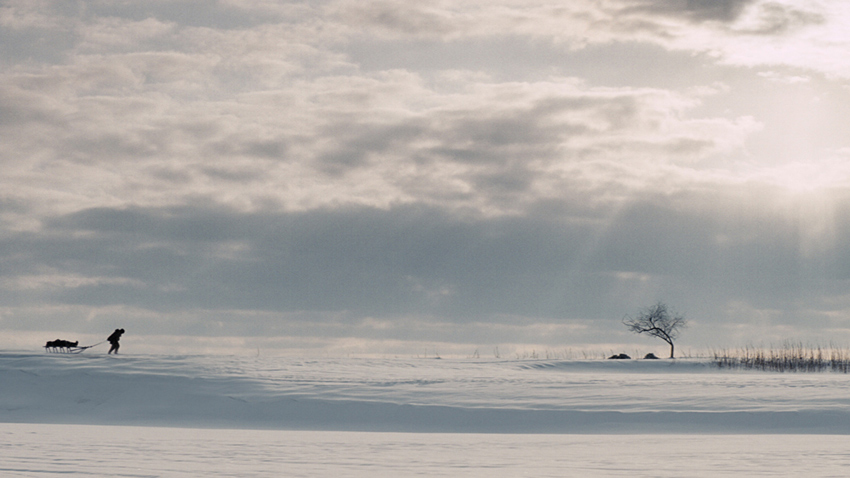Owen and Helen Tilbury are bringing their outstandingly successful BOFA film festival to southern Tasmania.

A breeze is blowing down through Tasmania’s Midlands towards its capital, but unlike smoky summer northerlies this one brings only fresh, thoroughly breathable air.
Since 2010 the Breath of Fresh Air (BOFA) film festival has offered northern Tasmanian film-lovers current cinema from all parts of the world, bringing stories that inspire positive action.
Founded with funding from the venerable Launceston Film Society and since supported by Screen Tasmania and Events Tasmania, BOFA has consolidated its position as a signature Tasmanian event. This year, co-founders Owen and Helen Tilbury have extended its reach to Hobart.
BOFA’s success in presenting significant social issues to Tasmanian audiences persuaded UTAS Law Faculty to support Hobart screenings of 10 of the 32 films in the 2019 Launceston program. The idea is that the Hobart component will get bigger with each passing year.
It’s heartening to see the north-south differences that have plagued this island since European settlement (maybe before, who knows?) being put aside for the benefit of the whole island.
BOFA has made an art out of variety. Documentaries are a feature of the 2019 BOFA program, tackling all manner of human lives and conditions – celebrity, music, our changing world, radicalisation, migration, yacht racing, food, feminism, invention, and much more.
The Eulogy is Janine Hosking’s tribute to Geoffrey Tozer, a concert pianist who was acclaimed abroad for his outstanding talent but not in his own country, except for a brief period of controversy when PM Paul Keating rewarded him with Australian Artists Creative Fellowships in the 1990s.
Tozer had a strong Tasmanian connection. He was conceived here (but born in India), and returned in the 1960s as a budding young pianist to study under Hobart teacher Eileen Ralf. Keating’s eulogy at his funeral in 2009 lambasted Australian orchestras for failing to draw on his outstanding talent.
A European-Australian collaboration called Island of the Hungry Ghosts sounds like an inviting prospect for Tasmanians, acquainted with both island life and (recalling my past life at Port Arthur) also ghosts.
This takes us to Christmas Island, known for its annual land crab migration from forest to sea and more recently for the detention of people seeking asylum in Australia. Besides exploring the visual wonders of the island, the film looks at detainees’ spiritual life in the face of uncertainty and death.
The program features two notable films on environmental themes. One is Aga, which I’ll come to later. The other is Defend Conserve Protect, by and about the Sea Shepherd organisation and its intrepid volunteers as they battle the Japanese whaling fleet in icy Antarctic waters.
I’m not a huge fan of single-issue environmentalism, but I found myself caught up in a beautifully filmed, dangerous and dramatic cat-and-mouse game, where real people show raw, unvarnished fear and genuine heroism in this unforgiving, magnificent environment.
Feature movies this year include shock-horror (Ghost Stories), crime (The Guilty), psychodrama (The Seen and Unseen), and plenty of exotic offerings including Birds of Passage and Memories of my Body. Two classics are The Seagull and a fully-restored My Brilliant Career (1979), whose director Gillian Armstrong and co-star Sam Neill will attend the Launceston screening.
Two particular titles caught my eye. Under the Cover of Cloud is a one-of-a-kind story about life and leisure in Hobart, filmed in a documentary style. Directed by Tasmanian-born writer and filmmaker Ted Wilson, the whimsical narrative revolves around David Boon and other Tasmanian cricketers.
The movie received critical acclaim at the Melbourne International Film Festival in August last year, where it had its global premiere. Wilson will attend his movie’s red-carpet screening in Hobart on Friday.
The second is Aga. I could not get access to the full feature, but what I did see brought back fond memories of The Raven’s Dance, a 1980 film by Finland’s Markku Lehmuskallio which greatly shaped my perspective on humanity and nature.
The first half of The Raven’s Dance, about the intrusion of industrialism into a couple’s forest life, was devoted to the beauty and slow rhythms of the natural environment, eventually broken by the sound of a distant chainsaw.
Aga, too, is about unvarnished nature, in this case the freezing, remote tundra near Yakutsk in far north-eastern Russia, where an indigenous couple who live in a yurt, Nanook and Sedna, must come to terms with the fact that the land of their forebears is changing, permanently.
Bulgarian director Milko Lazarov measures the pace at which those changes and the couple’s response to them unfold, illuminated by wonderful cinematography by Kaloyan Bozhilov and a music score by Penka Kouneva that builds to an epic conclusion.
Having done a huge service for Launceston’s cultural life, Owen and Helen Tilbury now promise to do the same for Hobart. Lovers of good cinema will be richly rewarded.
• BOFA is at Hobart’s Village cinema complex, Collins St, from Friday to Sunday. Launceston screenings (including 22 films not showing in Hobart) are from Thursday 16 to Sunday 19 May. Tickets at Village.
